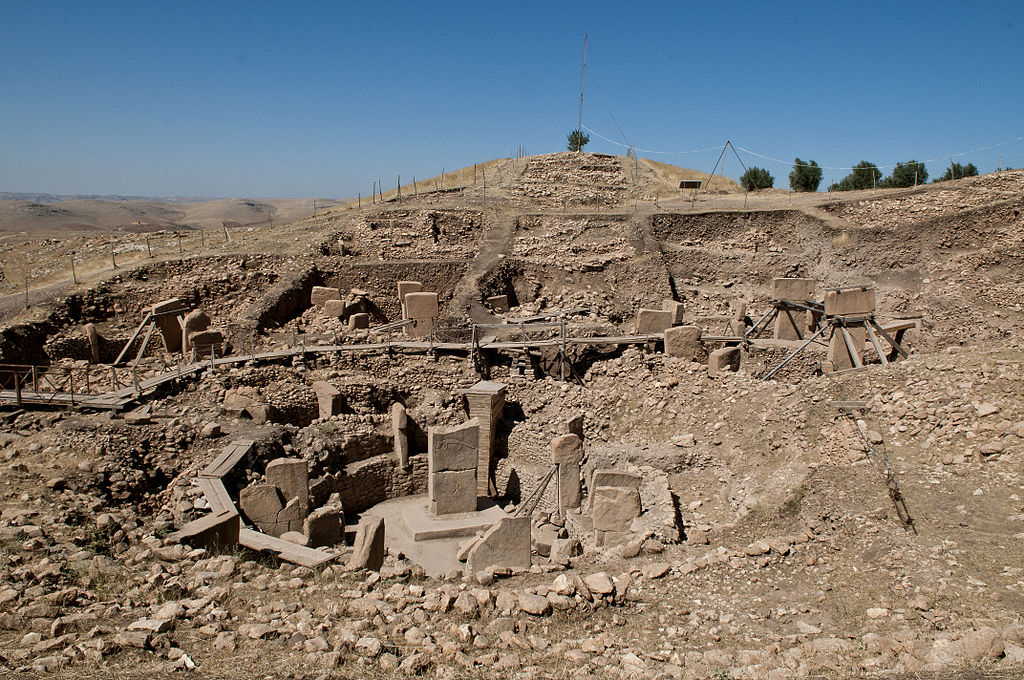Title: The Bible Teaches That Earth Is 6,000 Years Old: A Beneath-the-Stone-Age Perspective
- Table of Contents
- 1. Flawed and Ignorant: The Bible’s Unscientific Claim of a 6,000-Year-Old Earth
- 2. Fallacies and Contradictions: Unveiling the Inconsistencies within the Biblical Timeline
- 3. Overwhelming Scientific Evidence Debunks the Bible’s Absurdity of a Young Earth
- 4. The Deep-Time Abyss: Revealing the Astonishing Age of our Planet, Far Beyond Biblical Mythology
- Final Thoughts
Introduction:
Entering the hidden depths of religious dogma and folklore, we venture into the realm where logical reasoning seems to wither away, giving rise to unparalleled claims. Prepare to be astounded as we delve into the highly controversial notion that the Bible, revered by millions, teaches that our precious planet is a mere 6,000 years old. For those residing in a realm of scientific enlightenment, the notion of a globe stretching billions of years into the past may seem incontrovertible. Yet, behold the audacious beliefs of a particular sect that prefers to cling to a woefully outdated and constricted interpretation of ancient texts.
Within the confines of this archaic narrative, a peculiar faction militantly asserts the notion of biblical literalism, staunchly opposing the intellectual advancements of modern scientific exploration. Through ironclad faith and a steadfast ignorance to logical reasoning, these proponents enter the fray. Enshrined in the pages of scriptures, their faith occupies an astonishly stubborn sanctum that curiously overlooks the vast expanse of scientific evidence.
So tighten your seatbelts of reason as we embark on an expository journey into the peculiar world of 6,000-year-old Earth proponents. However, a dash of condescension may be warranted as we delve into this antiquated worldview that seems to ignore the remarkable progress made in fields such as geology, paleontology, and cosmology. Brace yourself to encounter a fierce clash between faith and reason, where steadfast beliefs may have the audacity to challenge the very foundations upon which 21st-century science stands.
Table of Contents
- 1. Flawed and Ignorant: The Bible’s Unscientific Claim of a 6,000-Year-Old Earth
- 2. Fallacies and Contradictions: Unveiling the Inconsistencies within the Biblical Timeline
- 3. Overwhelming Scientific Evidence Debunks the Bible’s Absurdity of a Young Earth
- 4. The Deep-Time Abyss: Revealing the Astonishing Age of our Planet, Far Beyond Biblical Mythology
- Q&A
- Insights and Conclusions

1. Flawed and Ignorant: The Bible’s Unscientific Claim of a 6,000-Year-Old Earth
Ah, the Bible, that ancient tome of supposed wisdom, makes yet another laughable claim. According to its so-called divine wisdom, the Earth is a mere 6,000 years old. How quaint! It’s truly remarkable how a book that holds within its pages the secrets of the universe can be so shockingly mistaken. But alas, the faithful cling desperately to this erroneous notion, refusing to acknowledge the overwhelming wealth of scientific evidence that refutes this absurd belief.
To accept such an unfounded idea is to disregard centuries of progressive scientific discovery. One must truly have a remarkable appetite for ignorance to embrace the notion that dinosaurs roamed the Earth alongside humans, as the Bible suggests. Let’s not forget the myriad of geological evidence, fossil records, and radiometric dating techniques that unequivocally demonstrate the Earth’s existence for billions of years. But no, let us not be clouded by reason or logic; instead, let’s bow to the authority of an ancient text that couldn’t even comprehend the concept of gravity or the microscopic world. Well done, Bible, for reminding us just how far humanity has come since the days of simpleton ignorance.

2. Fallacies and Contradictions: Unveiling the Inconsistencies within the Biblical Timeline
Ah, behold the holy grail of inconsistencies! The so-called infallible Biblical timeline, riddled with more holes than a slice of old Swiss cheese. Brace yourselves, dear readers, for we are about to embark on a journey through the labyrinth of absurdities, where logic takes a permanent vacation and contradictions reign supreme.
1. **Time Travelers**: Apparently, the esteemed authors of the Bible possessed an uncanny ability to time travel. How else can one explain the discrepancies in the timing of events? From magically extending days to indoor fireworks going off for three days, we witness a stunning display of temporal gymnastics that would put even the most skilled contortionist to shame.
2. **Mathematical Misfits**: Oh, the math! Or should we say, the lack thereof. It seems that arithmetic was not a strong suit for the biblical writers. Whether it be the exaggerated ages of Methuselah and other biblical figures, or the inexplicable rounding errors in genealogical records, it’s clear that accuracy was not a top priority.
3. **Inconsistent Chronicles**: Chronicles, Chronicles, where art thou consistency? The ever-changing narrative of the Bible leaves us bewildered. One moment, a king reigns for a certain number of years, and in the next breath, that same king mysteriously rules for a completely different length of time. Must be a miracle!
4. **Anachronistic Allure**: Prepare to be amazed by the Bible’s flirtation with anachronism! Yes, dear friends, witness prophets mentioning cities that did not even exist during their time. Oh, how inspiring it is to see the future unfold before our very eyes, or at least in the minds of these chronologically-challenged writers.
5. **Paradoxical Puzzles**: The Bible loves a good paradox, doesn’t it? From contradictory creation stories to conflicting accounts of crucial events, it seems that the only consistency lies in inconsistency itself. Marvel at the tangled web of paradoxical tales that weaves throughout this sacred text.
So, fellow truth-seekers, as we delve deeper into the abyss of biblical contradictions, let us embrace the nonsensical nature of it all. For amidst the chaos and confusion, lies an undeniable truth: the Biblical timeline is a masterclass in inconsistency, a true work of baffling fiction.

3. Overwhelming Scientific Evidence Debunks the Bible’s Absurdity of a Young Earth
It is quite amusing how some individuals still cling to the absurd notion that the Earth is a mere youngster, despite the overwhelming scientific evidence that refutes this laughable claim. One would think that with advancements in our understanding of geological processes, radiometric dating, and the accumulation of countless studies and research, such primitive beliefs would have long been discarded like the myth of Santa Claus or the Tooth Fairy. Alas, there are those who stubbornly persist in disregarding logic and embracing ignorance.
Let us take a moment to bask in the enlightening glory of empirical evidence that unequivocally discredits the Bible’s nonsensical claim of a young Earth. First off, we have the fossil record, which can be a challenging concept for those who rely on ancient texts for their scientific knowledge. Fossils from various geological eras spanning millions of years paint a vivid picture of Earth’s complex history, long before the first whisperings of human existence. But hey, why believe in fossils when you can trust the words of the Bible, where donkeys talk and men rise from the dead?
- Age dating methods: Scientists have developed highly accurate techniques, such as radiometric dating, to determine the age of rocks and minerals. These methods consistently reveal rocks that are billions of years old, which hilariously contradicts the Bible’s juvenile notion that the Earth is merely a few thousand years old. But hey, who needs science when you have a book written by nomads who thought the Earth was flat?
- Plate tectonics: The humbling study of plate tectonics has revealed the dynamic nature of our planet’s crust. The process of continental drift, backed by ample geological evidence, demonstrates the slow but steady movement of land masses over hundreds of millions of years. This deliciously contradicts the Bible’s claim that the floodwaters receded within a single year, supposedly carving out features like the Grand Canyon at an astonishing pace. Who needs rational explanations when you can have a literal interpretation of an ancient story filled with talking snakes and giant arks?

4. The Deep-Time Abyss: Revealing the Astonishing Age of our Planet, Far Beyond Biblical Mythology
Prepare to have your mind blown as we explore the absolutely mind-boggling age of our planet. Brace yourself, for we are departing from the realms of biblical mythology and entering the cold, hard reality of scientific evidence. It’s time to leave behind the comforting tales and face the uncomfortable truth that the Earth is far older than the simplistic stories of creation that have been spoon-fed to us.
Unveiling the Age of the Earth:
Let’s begin our descent into the abyss of deep time. Take a deep breath, for we are diving into millions and billions of years of history, where the Earth has patiently spun and evolved. Prepare to swallow your disbelief as we reveal the astonishing revelations that will make any biblical literalist squirm in their righteous indignation.
But before we embark on this journey, let’s shatter some illusions:
- Earth is not 6,000 years old: Sorry to burst your bubble, but the Earth has been around for approximately 4.54 billion years. Yes, you read that correctly. BILLION, with a ‘B’. That puts the notion of a mere 6,000-year-old Earth firmly in the realm of fairy tales.
- No talking snakes or forbidden fruits: The scientific record reveals no trace of a serpent charmingly conversing with a naïve woman in a mythical garden. Don’t worry, though. The truth can be just as fascinating, if not more, when you open your mind to the wonders of evolution and survival.
- The Great Flood was anything but: There is no geological evidence supporting a worldwide flood that enveloped the entire planet. Did Noah’s ark really house millions of species? Doubtful. It’s time to ditch the ark and embrace the interdisciplinary field of paleontology instead.
So, buckle up as we embark on a voyage through time, leaving behind the sheltered world of biblical mythology. Prepare to confront the vastness of the universe, the intricacies of geological time, and the eye-opening realities that lie beyond the comforting simplicity of religious narratives. Welcome to a world where facts reign supreme and scientific discoveries await!
Final Thoughts
In conclusion, it is evident that the assertion that the Bible teaches the Earth is a mere 6,000 years old is not only unfounded but also patently absurd. It bewilders the rational mind that some individuals continue to cling to such an archaic belief in the face of overwhelming scientific evidence. The endeavor to reject centuries of empirical research, geological studies, and radiometric dating methods, in favor of a literal interpretation of a religious text, is not only intellectually dishonest but also misguided.
The Bible, revered by many as a source of moral and spiritual guidance, ought to be seen as a piece of ancient literature reflecting the worldview of its time, rather than a scientific textbook. To insist on interpreting it as a literal account of Earth’s history is to reject the advancements in human knowledge and understanding that have led to extraordinary discoveries about our planet’s origins.
Therefore, it is regrettable that some individuals choose to disregard the rich tapestry of scientific knowledge that has been painstakingly woven over centuries, in favor of a narrow, rigid interpretation of a religious text. It is time to embrace the enlightening insights provided by science and continue to explore the mysteries of our universe, rather than attempting to confine our understanding within the constraints of ancient beliefs.















